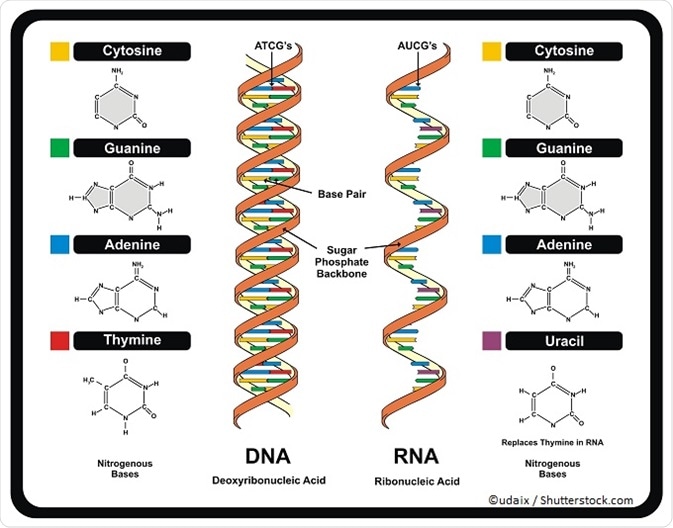The RNA World Hypothesis is a concept put forth in the 1960s by Carl Woese, Francis Crick and Leslie Orgel. It proposes that earlier life forms may have used RNA alone for the storage of genetic material.
Walter Gilbert, a Harvard molecular biologist, was the first to use the term "RNA World" in an article published in 1986. The hypothesis posists that DNA later became the genetic material as a result of evolution because RNA was a relatively unstable molecule. According to the RNA World Hypothesis, around 4 billion years ago, RNA was the primary living substance, largely due to RNA’s ability to function as both genes and enzymes.
The main reasoning behind the hypothesis is that RNA is capable of self-replication and could therefore have carried genetic information across generations independently. This concept has been highly debated in the scientific world over the last 50 years.

Experts now generally agree that non-living chemicals could not have given rise to bacterial cells in a single step and that intermediate, pre-cellular life forms must therefore have existed. Of the possible pre-cellular life models considered, the most popular is the RNA World.
In 1968, Sir Francis Crick proposed that RNA must have been the primary genetic material as it is capable of self-replication, owing to its ability to act as an enzyme. Moreover, RNA can also be converted to DNA by reverse transcription, which further strengthens the idea that the RNA world could have been the initial pathway to cells.
Ribozymes and the RNA world
It was previously thought that the only biomolecules that could catalyze essential chemical reactions in cells were proteins. However, Sidney Altman, Thomas Cech and colleagues discovered a class of RNAs that is capable of catalyzing chemical reactions ─ ribozymes. Altman and Cech were awarded the Nobel Prize in Chemistry in 1989 for this discovery.
The discovery of ribozymes supported the RNA World Hypothesis. The strongest argument for proving the hypothesis is perhaps that the ribosome, which assembles proteins, is itself a ribozyme. Despite the fact that the ribosome is composed of both RNA and protein, the processes involved in translation are not catalyzed by protein, but by RNA, indicating that early life forms may have used RNA to catalyze chemical reactions before they used proteins.
Summary
Research over the years has demonstrated the useful properties of random RNA sequences, such as the production of active RNA ligases from random sequences of RNA. However, this is not enough to prove the RNA World hypothesis. Based on what is known about present-day organisms, it is not possible to conclude that a self-replicating molecule was the primary source of catalytic mechanisms fundamental to living systems.
Research on the RNA World Hypothesis is ongoing, although recent findings threaten to disprove the hypothesis. NASA apparently stated in a 1996 report that the “significant difficulties” that surround the RNA World concept include the chemical fragility of RNA and its narrow range of catalytic activities.
Biochemist Harold S Bernhardt shares the same concerns and in a 2012 biology paper, he referred to the concept as ‘the worst theory of the early evolution of life.’ His paper states that the complexity of the RNA molecule means it could not have arisen prebiotically; that RNA is unstable and that it possesses limited catalytic properties.
The RNA Origin of Life
References
- http://www.ncbi.nlm.nih.gov/books/NBK26876/
- http://www.nature.com/nrg/journal/v16/n1/full/nrg3841.html
- http://www.evolutionnews.org/2015/06/on_the_origin_o_7097191.html
- http://www.panspermia.org/rnaworld.htm
- https://exploringorigins.org/ribozymes.html
Further Reading
Last Updated: Jul 24, 2023